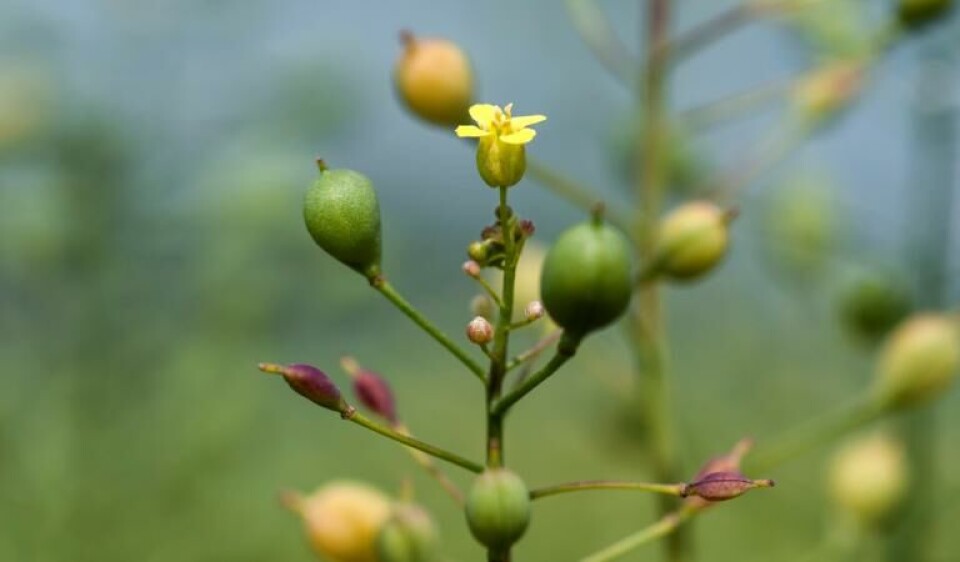
Five-year trials into GM-crop alternative for salmon feed
UK agriculture science centre Rothamsted Research has been given permission to run a five-year series of trials using genetically modified camelina plants that could provide an alternative to marine ingredients in salmon feed.
The successful application to the Department of Environment, Food and Rural Affairs (Defra) follows previous GM camelina trials carried out last year by Rothamsted across two sites in Hertfordshire and Suffolk, which is where the new trials must also be carried out.
The first part of the proposed research will determine performance in the field, and the seed oil yield, of transgenic camelina plants that have been engineered to accumulate omega-3 fish oils in their seeds.

Protection against heart disease
These fatty acids, also known as omega-3 long chain polyunsaturated fatty acids (LC-PUFA), help protect against human cardiovascular disease.
In a collaboration with University of Stirling’s Institute of Aquaculture (IoA) and Norwegian University of Science and Technology it was shown that these GM oils were an effective substitute for fish oil in the feeds of farmed salmon.
And a recent study led by the University of Southampton found the uptake and use of these oils by the body was the same whether plant or fish-based sources were consumed.
A review of the worldwide availability of LC-PUFA lead authored by the IoA’s Douglas Tocher and published in the journal Nutrients highlighted that a significant gap exists between the 1.27 million tonnes a year required to provide everyone on the planet with a recommended daily amount of 500mg and the amount available, which is estimated at between 0.3 and 0.8 million tonnes.
Sustainable source
Rothamsted’s scientists hope to develop a sustainable source of these beneficial oils from plants rather than from oceanic sources and to provide more of these important nutrients.
The second strand of work will look at the performance of camelina plants whose metabolism has been altered to increase seed oil content.
The final part will investigate the performance of camelina plants engineered to contain less sinapine in their seeds. Sinapine is a bitter-tasting, antinutritive chemical that can make the protein-rich seed meal less palatable as an animal feed.
A number of organisations have objected to the trials, fronted by GM Freeze, the UK umbrella campaign for a moratorium on the use of genetic modification (GM) in food and farming.
‘No benefit to society’
The objectors argue, among other things, that the containment measures of the open-field trials are inadequate and that GM camelina will be of no benefit to society.
In an open letter, they claim “there is no conclusive evidence of health benefit from omega-3 fatty acid supplementation and some evidence of potential harm”, adding: “Even if we accept the premise that higher EPA and DHA consumption will lead to better health, it does not follow that these fatty acids must be obtained by eating fish.”
“The potential for microalgae to be used as a feed for aquaculture has received much attention from the research community and shows potential to have a smaller resource footprint than traditional fish feed,” continue the objectors.
“GM camelina is neither the only nor, in all likelihood, the most economical, solution to reducing the use of fish oil as a feed in aquaculture.”
They argue that “converting arable land that should be growing high quality food for direct human consumption into an open-air factory producing micronutrient additives for industrially farmed animals” will not support government aims of “a more rational, and sensitive agricultural policy which promotes environmental enhancement, supports profitable food production and contributes to a healthier society”.






















































